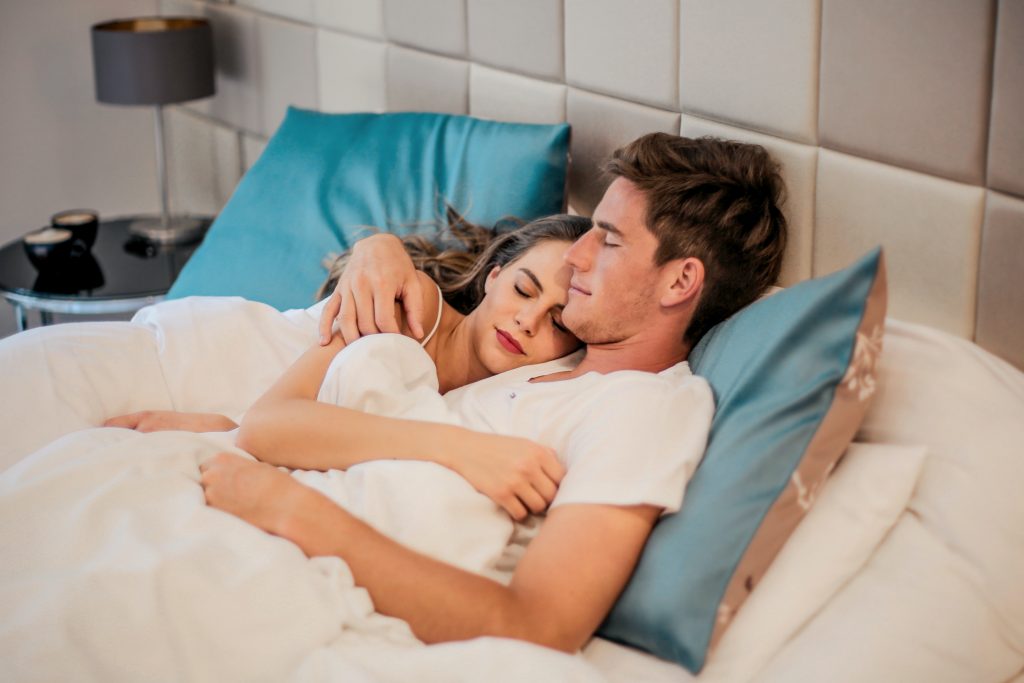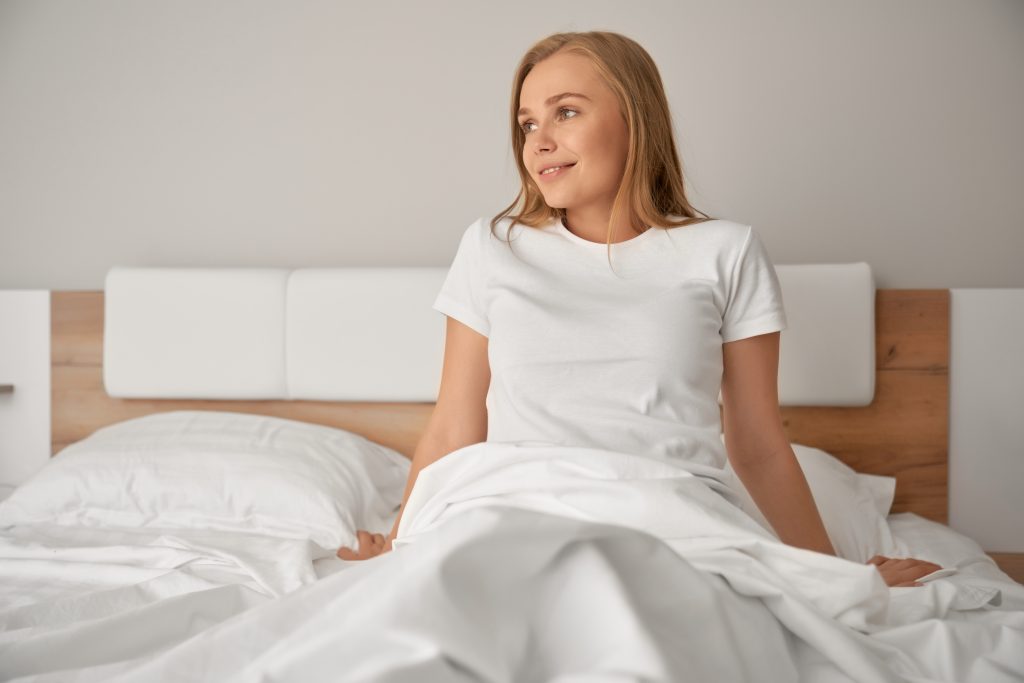5th floor, Lakshmi Sharada Arcade,
6th Main Road, No 251,
17th Cross Road,Sector 7,
HSR Layout,Bangalore,
Karnataka-560102

Sleeping well directly affects your mental and physical health.
Fall short and it can take a serious toll on your daytime energy, productivity, emotional balance, and even your weight.
Yet many of us regularly toss and turn at night, struggling to get the sleep we need.
You're not doomed to toss and turn every night.
Consider simple tips for better sleep, from setting a sleep schedule to including physical activity in your daily routine.
Start with these simple tips
Avoid Naps
While short power naps are beneficial, long or irregular napping during the day can negatively affect your sleep.
Sleeping in the daytime can confuse your internal clock, meaning that you may struggle to sleep at night.
But if you have to snooze while the sun's up, keep it to 20 minutes or less. Nap in the early part of the day. You’ll rest better at night.

Reserve bed for sleep and sex
Don't use your bed as an office for answering phone calls and responding to emails.
Also avoid watching late-night TV there.
The bed needs to be a stimulus for sleeping, not for wakefulness.
Reserve your bed for sleep and sex.
Eat right at night
Don't go to bed hungry or stuffed. In particular, avoid heavy or large meals within a couple of hours of bedtime. Your discomfort might keep you up. Have a light dinner of maybe a salad and soup or something similar.

Keep in Sync with your Body’s Natural Sleep-Wake Cycle
Try to go to sleep and get up at the same time every day. This helps set your body’s internal clock and optimize the quality of your sleep.
Avoid sleeping in—even on weekends. The more your weekend/weekday sleep schedules differ, the worse the jetlag-like symptoms you’ll experience. If you need to make up for a late night, opt for a daytime nap rather than sleeping in.
Power down
Avoid bright screens within 1-2 hours of your bedtime. The blue light emitted by your phone, tablet, computer, or TV is especially disruptive.
Say no to late-night television. Not only does the light from a TV suppress melatonin, but many programs are stimulating rather than relaxing. Try listening to music or audio books instead.
Don’t read with backlit devices. Tablets that are backlit are more disruptive than e-readers that don’t have their own light source.

Exercise ta the right time
People who exercise regularly sleep better at night and feel less sleepy during the day.
Exercise speeds up your metabolism, elevates body temperature, and stimulates hormones such as cortisol.
This is good if you’re exercising in the morning or afternoon, but too close to bed and it can interfere with sleep.
Try to finish moderate to vigorous workouts at least three hours before bedtime.
Relaxing, low-impact exercises such as yoga or gentle stretching in the evening can help promote sleep.
Restrict caffeine
Coffee in the morning is fine for most people.
But as soon as the clock strikes noon, avoid caffeine in foods and drinks.
In one study, consuming caffeine up to 6 hours before bed significantly worsened sleep quality.
The stimulating effects of caffeine take hours to wear off and can wreak havoc on quality sleep.
Reference

Don't drink any liquids before bed
Nocturia is the medical term for excessive urination during the night. It affects sleep quality and daytime energy.
Although hydration is vital for your health, it’s wise to reduce your fluid intake in the late evening.
Try to not drink any fluids 1–2 hours before going to bed.
You should also use the bathroom right before going to bed, as this may decrease your chances of waking in the night.
Reference
Don't drink alcohol
Alcohol can make you sleepy at bedtime, but beware.
After its initial effects wear off, it will make you wake up more often overnight.
Alcohol is known to cause or increase the symptoms of sleep apnea, snoring, and disrupted sleep patterns.
So, skipping the happy hour at a bar with friends will definitely help you.
Reference
De-stress
The bills are piling up and your to-do list is a mile long.
Daytime worries can bubble to the surface at night.
Stress is a stimulus. It activates the fight-or-flight hormones that work against sleep.
Give yourself time to wind down before bed.
Learning some form of the relaxation techniques can promote good sleep and can also reduce daytime anxiety.
To relax, try deep breathing exercises. Inhale slowly and deeply, and then exhale.

Take a relaxing bath or shower
To fall asleep faster, researchers suggest taking a hot bath.
A study found that taking a hot bath about 90 minutes before bed could help people fall asleep more quickly.
The hot water actually helps change your body’s core temperature so that you go to bed with a lower temperature. A drop in temperature helps signal to the body that it’s time for bed.
Reference
Quit smoking
Nicotine is a stimulant, just like caffeine.
Tobacco can keep you from falling asleep and make insomnia worse.
The stimulating effects of nicotine takes hours to wear off and can wreak havoc on quality sleep.

Improve your sleep environment
Create a room that's ideal for sleeping. Often, this means cool, dark and quiet.
Temperature, lighting and noise should be controlled so that your bedroom environment helps you to fall (and stay) asleep.
Most people sleep best in a slightly cool room with adequate ventilation.
A bedroom that is too hot or too cold can interfere with quality sleep.
Instead of switching on a tube light, think about lamps, a dimmer switch, or candles to create a more serene setting.
Use caution with some meds
Some sleep medicines can become habit-forming, and they may have side effects.
Some other meds like cough syrups can make u sleepy and can also become a habit.
Avoid taking such meds to induce sleep.
Also sleeping pills should be a short-term solution while you make lifestyle changes to sleep better.
Ask your doctor what’s OK.

Know when to contact a doctor
Nearly everyone has an occasional sleepless night — but if you often have trouble sleeping, contact your doctor.
Identifying and treating any underlying causes can help you get the better sleep you deserve.